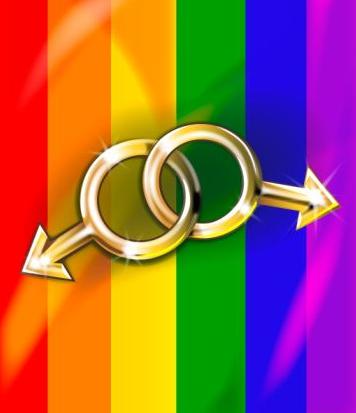Protection
Lawmakers vote to protect gay, lesbian workers
 The Democratic-led House of Representatives on Wednesday defied a White House veto threat and voted to protect millions of Americans by outlawing workplace discrimination based on sexual orientation.
The Democratic-led House of Representatives on Wednesday defied a White House veto threat and voted to protect millions of Americans by outlawing workplace discrimination based on sexual orientation.
"This is truly a historic day," House Speaker Nancy Pelosi, a California Democrat, told her colleagues. "Discrimination has no place in America."
The measure passed 235-184, falling far short of the two-thirds majority that would be needed to override a possible veto by President George W. Bush.
Democrats vowed to try to mount support, but face stiff opposition from the religious right and others in what's been a 30-year effort to enact such legislation into law.
While the House-passed bill drew praise from civil rights groups, it elicited the ire of lesbian and gay organizations that sought broader protection for members of their diverse community.
Sent to the Senate for concurrence, the bill would prohibit employers from considering sexual orientation in deciding whether to hire, fire or promote someone.
But the Employment Non-Discrimination Act would not cover transgender men and women -- those whose gender identity differs from their birth sex.
In a letter to House members, a coalition of nearly 400 gay, lesbian and transgender groups wrote that it opposed the legislation because it "leaves some of us behind."
Democrats had initially sought transgender protection. But many backed off when they realized they did not have the votes, and feared transgender coverage could sink the bill.
"I wish we had the votes in this House to ban discrimination of all sorts," said Democratic Rep. Barney Frank of Massachusetts, a chief sponsor of the measure and one of two openly gay members of Congress.
"I wish for a lot of things, but I will not act on my wishes irresponsibly," Frank said.
Rep. Howard McKeon, a California Republican, opposed the bill, warning it "could result in the exact opposite effect its supporters intend by creating new pressures on employers to consider and even document their employees' sexual orientation, actual or how it is perceived, in order to guard against litigation."
It's now legal in 30 of the 50 U.S. states to fire someone because of their sexual orientation. A recent study found that 16 percent lesbians and gays reported being dismissed or denied a job because of their sexual orientation.
"There are millions of our fellow citizens, gay or lesbian, who live in fear that they could be fired because they live in states where there is no such protection," Frank said.
The White House has threatened to veto the bill, which has been described as a proposed extension of the 1964 Civil Rights Act that banned discrimination based on race, sex and national origin.
In a statement, the White House said, "The bill turns on imprecise and subjective terms that would make interpretation, compliance and enforcement extremely difficult."
Mostly Republican critics also complained the bill, despite Democratic claims to the contrary, would inadequately exempt religious institutions from the proposed law, and could even undermine state laws banning same-sex marriage.
Tony Perkins of the conservative Family Research Council, which opposed the bill, said the proposal would permit "mainstream homosexuality, bisexuality ... and provide activists a legal tool for punishing employers who do not approve of these lifestyles."
Democratic Rep. Jerrold Nadler of New York spoke in favor of ending workplace discrimination, but then announced he would vote against the measure, saying it did not go far enough.
"I believe it is important we take a principled stand now, and speak with a strong and united voice for equal rights for all Americans, whether they are lesbian, gay, bisexual or transgender," Nadler said.
(Published by Reuters, November 8, 2007)
______________________